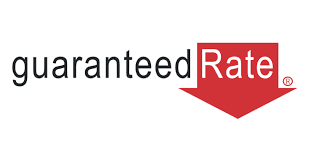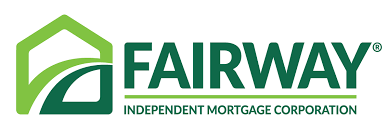Current New Hampshire Mortgage and Refinance Rates
Summary of the best mortgage lenders
Lender LendingTree rating and “best of” category Lender review


Refinance loansRead our review


VA loansRead our review


Jumbo loansRead our review


Online mortgage experienceRead our review


FHA loansRead our review


Home equity loansRead our review


Mortgage loan varietyRead our review
![]() Learn more about how we chose our list of the best mortgage lenders.
Learn more about how we chose our list of the best mortgage lenders.
The rules and costs of buying a home in New Hampshire
Every home purchase has its own guidelines and financial responsibilities. If you’re a potential homeowner in New Hampshire, here are the rules you need to know.
Home seller and buyer laws
- What must sellers disclose?In New Hampshire, sellers are required to provide certain information to buyers. The stateproperty disclosure formcovers such topics as the home’s water supply, sewage disposal system, property location, insulation, hazardous material and other general information.
- How does foreclosure work?Foreclosures in New Hampshire are typically nonjudicial, which means a court does not intervene. A servicer is required to provide only one notice of impending action. Thus, foreclosure in the state can happen very quickly. If no action is taken to prevent it, the owner can lose their home in less than 120 days.
- How is property divided in divorce?New Hampshire is known as an equitable distribution state. This means that, in the event of divorce, the court will divide a couple’s property in a manner it considers fair and equitable. This does not necessarily mean that property will be divided 50/50. Additionally, the court provides couples a chance to apprise what belongs solely to one or the other.
- Does a lawyer need to be present during a home closing?New Hampshire is an attorney state, which means that real estate closings must be handled by lawyers. An attorney is responsible for representing the buyer, and preparing mortgage documents, dealing with title paperwork and facilitating a smooth close to the deal.
Taxes
The real estate transfer tax is a tax on the sale, granting and transfer of real estate. In New Hampshire, the tax is imposed on the buyer as well as the seller at a rate of $0.75 per $100 of the sale price. Mortgage lenders are responsible for properly disclosing the exact amount of transfer taxes payable once you have indicated interest in a particular property.
The average property tax rate in New Hampshire is 1.86% of the home’s value, which works out to a median property tax of $4,636.00 for a home worth the median value of $249,700, according toTax-Rates.org. However, rates vary by county. In Rockingham County, which has the highest property taxes in the state, the average property tax bill is $5,344. Carroll County has the lowest property taxes, averaging around $2,582 per year.
New Hampshire does offer property tax exemptions. The state has an elderly exemption, a veteran’s tax credit and a veteran’s exemption.
Conforming loan limits
Theconforming loanlimit across most counties in New Hampshire is $484,350 for a single-family dwelling. In Rockingham and Strafford counties, the limit is higher at $688,850.
Conforming loan limits are the maximum origination balances that may be purchased by government-sponsored entitiesFannie Mae and Freddie Mac.

Programs for homebuyers in New Hampshire
New Hampshire homebuyers may take advantage of several programs aimed to help them achieve their goal of homeownership. Depending on your specific situation, you may find that at least one program is suitable for your needs.
Home Flex Plus (FHA, VA and RD) and Home Preferred Plus (Conventional)
Both New Hampshire housing programs provide cash assistance for as much as 3% of the base loan amount to help homebuyers with their down payment and closing costs. This is issued as a second mortgage that is forgiven in full after four years, unless during that time the borrower sells, refinances or files for bankruptcy. In all of those cases, the assistance must be repaid.
The programs differ in terms of the loans they service: Home Flex Plus may be applied to FHA, VA and RD mortgages, while Home Preferred Plus is applicable to conventional loans.
Who qualifies:
- Homebuyers with incomes up to $128,900
- For Home Flex Plus, borrowers must complete a homebuyer education course
Purchase Rehabilitation Mortgage Program
New Hampshire Housing’s Purchase Rehabilitation Mortgage program provides up to $35,000 in additional funding to the purchase mortgage, with as little as 3.5% down. This extra funding can assist with repairs and upgrades, including cosmetic issues, energy-efficient improvements and safety improvements. This program can be combined with Home Flex Plus.
Who qualifies:
- Homebuyers with incomes up to $128,900
Home Start Homebuyer Tax Credit
The Home Start Homebuyer Tax Credit provides a long-term tax benefit to help first-time homebuyers in New Hampshire afford their goals of homeownership. This federal Mortgage Credit Certificate lets a homebuyer claim a tax credit for a part of the yearly mortgage interest, up to $2,000 for the life of the original loan so long as the buyer continues to live in the home.
Who qualifies:
- Borrowers who are first-time homebuyers
- Occupy home as primary residence
- Homebuyers with incomes up to $128,900, depending on household size